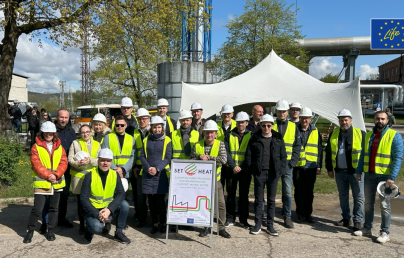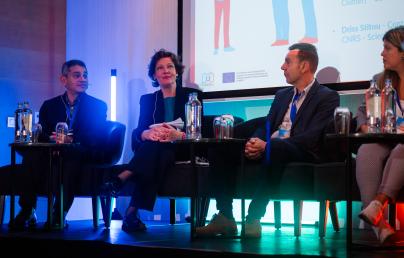
Decarbonising Europe’s buildings: The smart innovation behind META BUILD

Decarbonising Europe’s buildings: The smart innovation behind META BUILD
Europe is facing challenges in replacing outdated building technologies, which hinder the decarbonisation of the construction sector. The project META BUILD is leveraging advanced technologies to optimise energy efficiency, enhance smart building integration, and support the EU’s climate neutrality goals.
The decarbonisation of Europe’s building sector faces significant challenges, largely due to the widespread use of traditional heating and cooling systems reliant on high-carbon fuels, making large-scale replacement costly and complex. However, renewable energy technologies, such as heat pumps, solar, geothermal, and wind, have become increasingly affordable and offer viable alternatives without compromising occupant comfort. Despite these advancements, cost-effectiveness, scalability, and integration remain barriers to widespread adoption.
META BUILD is tackling the challenge of reducing carbon emissions in buildings by creating and testing integrated solutions that electrify heating and cooling demands. The project combines existing technologies, including heat pumps, renewable energy sources, and advanced energy storage systems, into a holistic and economical framework for transforming building energy systems. Several cutting-edge heat pump designs are being developed, featuring inverter-driven modulation, high-temperature capabilities for district heating, and hybrid systems combining gas boilers with heating networks, ensuring efficient and adaptable energy solutions for buildings.
Smart tools to enhance energy efficiency
Beyond physical infrastructure, META BUILD emphasises digital transformation to enhance energy efficiency. The project integrates smart energy management tools, facilitating seamless technology adoption while maintaining occupant comfort. Advanced digital solutions, such as digital twins and predictive control systems, enable real-time energy monitoring, proactive system maintenance, and demand-response optimisation, reducing energy consumption and operational costs.
The initiative, which spans six European countries, focuses on promoting the decarbonisation of thermal energy demand in buildings, enhancing building performance, encouraging the use of locally generated renewable energy and energy storage solutions, developing cost-effective and scalable approaches to thermal electrification, reducing per-building costs and accelerating large-scale deployment across Europe. Additionally, it supports integrating energy flexibility services, ensuring grid stability and improved efficiency within the wider electrical system.

